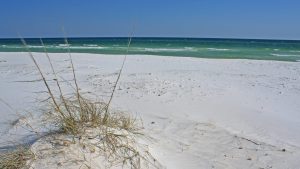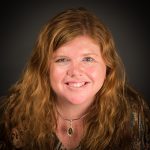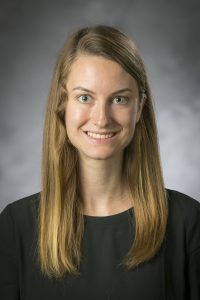SE CASC Spring 2022 Science Seminars
Join us this Spring for a virtual science seminar series highlighting SE CASC funded projects supporting resource management actions across the Southeast. SE CASC researchers will provide an overview of their work and the management implications of their research findings. Explore our collection of Science Seminar Series recordings here.
Forecasting the Influence of Conservation Strategies on Landscape Connectivity
Dr. Tina Mozelewski, Northeast Climate Adaptation Science Center
May 24, 2022 | 11AM ET
View a recording of this presentation.
Webinar Overview:
Improving landscape connectivity can help to reduce biodiversity declines due to habitat fragmentation and support adaptation to climate change as species move following their climate envelopes. The expansion of protected area networks is one common approach to enhance connectivity, but not all strategies guiding land acquisition and restoration for protected area development will prove equally beneficial. Decisions about which strategies to employ to meet conservation targets will result in protected area networks with variable, and species-dependent, contributions to landscape connectivity. These decisions can benefit from technological advances in simulation modeling, which can now forecast landscape responses to both management and environmental change allowing for the assessment of conservation strategies prior to implementation. In this talk, we will highlight a new approach for evaluating conservation alternatives for protected area network development and their contributions to landscape connectivity prior to on-the-ground deployment. We will discuss ways in which this approach can support managers seeking to facilitate connectivity on their landscapes and help them to prioritize strategies that best meets the connectivity needs of their focal species.
More about the speaker:

Tina Mozelewski is a postdoctoral research fellow with the Northeast Climate Adaptation Science Center at the University of Massachusetts-Amherst, combining geospatial analytics, species distribution and occupancy modeling, and decision science to support habitat and species conservation in the face of global change. Tina has worked as a conservation researcher and practitioner in a diversity of ecosystems from the deserts and riparian forests of the southwestern US, to the temperate rainforests of the Pacific Northwest, to the pine and mixed hardwood forests of the Southeast, to the montane meadows and streams of California. She received her PhD in Fisheries, Wildlife, and Conservation Biology from North Carolina State University, where her research used landscape change modeling to quantify the influence of climate change, land use change, and conservation action on landscape-level connectivity and ecosystem state change in central North Carolina.
Prioritizing and Implementing Research for Adaptation Planning at Gulf Islands National Seashore
Erin Seekamp, North Carolina State University, and James Flocks, USGS St. Petersburg Coastal and Marine Science Center
May 10, 2022 | 12PM ET
View a recording of this presentation.

Webinar Overview:
This presentation will provide an overview of sediment budget research and data needs that can enhance the National Park Service’s efforts to conserve the islands’ natural resources, cultural resources, and the facilities and infrastructure that support both conservation and visitor use of those resources. Key budget research and data needs were identified during a 2020 workshop series with diverse regional stakeholders (i.e., federal, state, and regional governmental agencies and non-governmental and academic researchers), who also assessed the importance and urgency of thematically group research and data needs. Additionally, the presentation will provide an update on recent USGS-led research projects focusing on coastal change and sediment transport processes at the Gulf Islands National Seashore.
More about the speakers:

Erin Seekamp, Ph.D. is a Professor and University Faculty Scholar in the Department of Parks, Recreation & Tourism Management (PRTM) at NC State University. Her research program uses participatory social science methodologies to build climate readiness in coastal communities and advance climate adaptation planning for cultural resources.

James Flocks is a geologist with the U.S. Geological Survey, St. Petersburg Coastal and Marine Science Center, Geology of Coastal Margins team. His research focuses on the geologic framework of coastal environments, sediment transport processes, and providing scientific support for coastal management decisions.
Incorporating the Benefits of Natural and Working Lands in Conservation Planning
Katie Warnell, Nicholas Institute for Environmental Policy Solutions at Duke University
March 22, 2022 | 1 PM ET
View a recording of this presentation.
Webinar Overview:
Natural and working lands – forests, farmlands, and wetlands – make up more than 80% of North Carolina’s land area and provide a variety of benefits to our communities and economy. The importance of these lands is increasingly being recognized in state-level planning (including the Natural & Working Lands Action Plan, part of the NC Climate Risk & Resilience Plan) and funding (for example, the 2021 state budget dedicated $15 million to the Land & Water Fund specifically for floodplain protection and restoration projects), and both state agencies and conservation organizations have expressed interest in better understanding and communicating the broad range of benefits provided by the lands they manage. In this talk, we will discuss our work over the past several years to support consideration of natural and working land benefits in planning by developing spatial datasets to answer key questions, making relevant data and information more accessible, and helping conservation organizations expand their consideration of co-benefits beyond their main objectives. Read more about recent products from their work.
More about the speaker:

Katie Warnell is a policy associate in the Ecosystem Services Program at the Nicholas Institute for Environmental Policy Solutions at Duke University. She has worked on a variety of projects to incorporate ecosystem services into decision-making and planning contexts, including state-level natural and working lands planning for climate and resilience benefits in North Carolina, metrics development for tracking benefits of coastal restoration projects in the Gulf of Mexico, and mapping changes to coastal habitats and blue carbon due to sea level rise on the east coast. Katie has a master of environmental management degree and geospatial analysis certificate from Duke University.